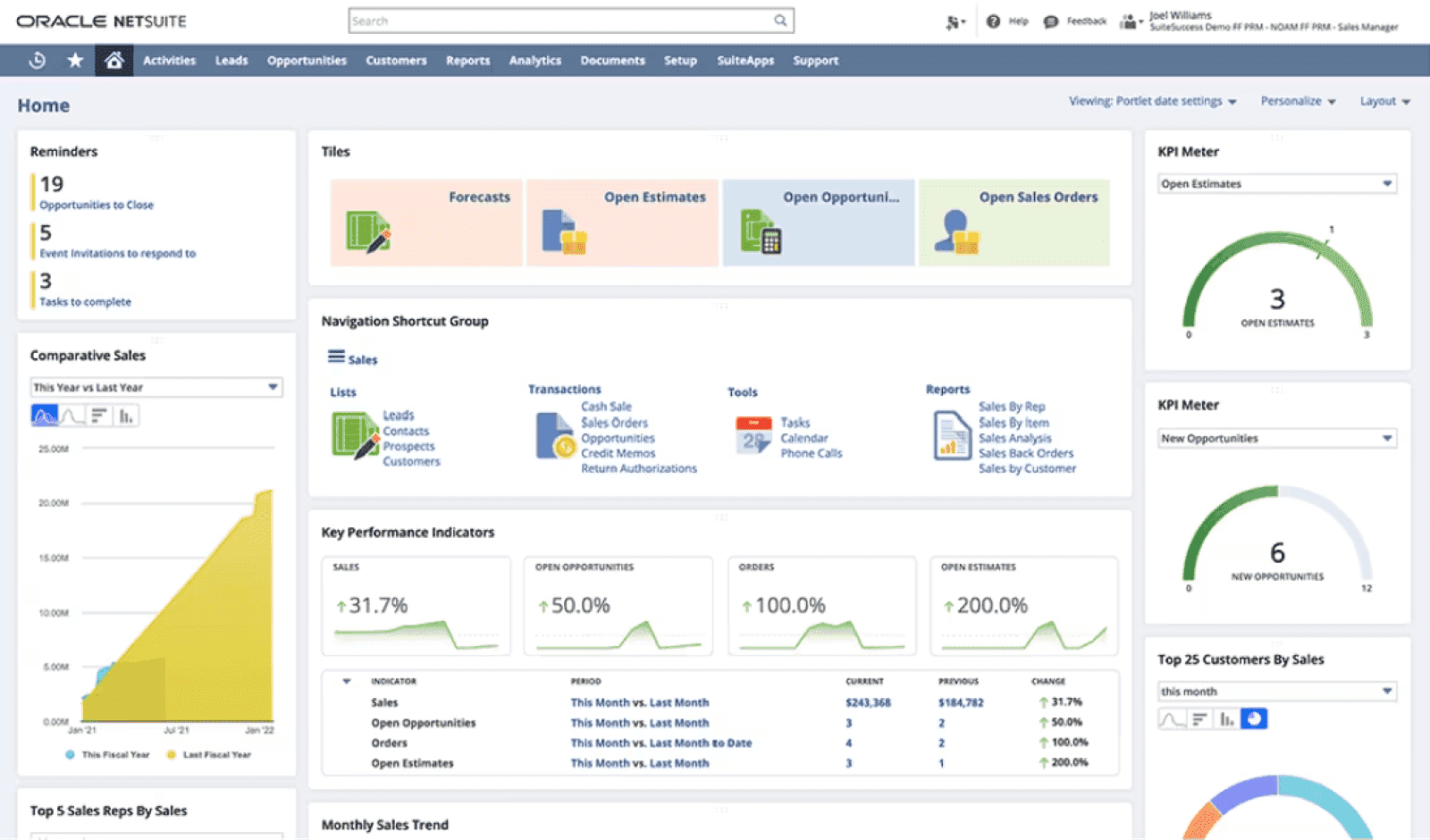
CRM strategy: key steps, guidelines & payoffs
November 3, 2025
- Home
- CRM services
- CRM strategy
A CRM strategy is an action plan that guides how an organization manages interactions and relationships with leads and customers. An effective CRM strategy aligns marketing, sales, and customer service efforts to grow revenue, attract new customers, and strengthen relationships with existing ones.
- Successful CRM strategy focuses on establishing strong and lasting relationships with customers through prioritizing customer satisfaction, personalized interactions, and effective communication.
- CRM strategy is shaped according to the company’s business objectives and needs, customer needs and preferences, and the target market.
- Organizations typically rely on CRM software solutions to centralize relevant data and turn their CRM strategy into action.
Relying on 10+ years of experience in delivering CRM services and solutions, Itransition helps companies design customer-focused CRM strategies and implement scalable, secure digital solutions to support them.
Table of contents
Essential CRM strategy activities
Define your business goals
Business goals are the underlying drivers of any CRM strategy. This means that your company should first determine what it needs and wants to achieve in terms of customer relationship management to set up a plan of action.
- Consult with stakeholders to identify your marketing and sales-related goals. Common objectives include shortening the sales cycle, increasing sales, reducing customer acquisition costs, and maximizing customer retention. You should also clarify your overall business goals, such as expanding to new markets or launching new product lines, as they will impact your CRM strategy.
- Follow the SMART criteria to set your goals and objectives. SMART goals should be specific (establish what to accomplish and how), measurable (tracked via an indicator of progress), achievable (based on realistic expectations), relevant (aligned to your company’s overall mission), and time-bound (have a timeframe or a deadline). For instance, you may plan to increase lead generation by 20% through targeted social media marketing within one year.
Adopt the right CRM system
With growing customer bases and increasingly complex customer-centric business processes, CRM solutions have become staple elements in the software ecosystems of both small businesses and large organizations, helping them put their CRM strategies into practice. These tools serve as centralized hubs to gather customer data and other relevant information from corporate or external systems. They can also support your sales, service, and marketing efforts through process automation.
- CRM software functionality depends on factors like the size of your company, your industry, and the range and complexity of your customer-oriented processes. Generally speaking, a basic feature set includes marketing automation, contact information management, sales pipeline tracking, document generation via templates, and automated customer support.
- You can develop custom CRM software or adopt an out-of-the-box solution, including SaaS platforms like Salesforce, Oracle NetSuite, Microsoft Dynamics 365, and HubSpot. Custom CRM systems can be equipped with a unique set of features but require higher upfront costs for development, while off-the-shelf CRM platforms are usually faster and cheaper to implement but incur long-term licensing expenses.
- If you opt for an off-the-shelf CRM solution, make a choice based on the platform’s feature set, customization possibilities, and licensing model. In addition, evaluate the product’s usability via peer-to-peer review sites or free trial periods.
- Provide your employees with extensive training and support so that they can learn how to effectively work with the new CRM system.
Identify your target customer
Defining a buyer persona, namely a generalized portrait of your target audience, can help you ensure that your CRM strategy meets the specific needs and expectations of your potential customers.
- To create a comprehensive buyer persona, you need to combine various types of data, such as behavioral data (browsing patterns, purchase history, etc.), demographic data (age, gender, job, etc.), psychographic data (interests, values, attitude, etc.), and geographic data (region, city size, etc.).
- You can rely on a combination of research methods, focus groups with clients and customer surveys, to create more nuanced target customer descriptions. Furthermore, with the growing volume of digital customer interactions, you can analyze online behavioral patterns on your website or social media platforms via data analytics tools.
- While having clients with homogenous traits would simplify customer relationship management, businesses typically interact with a range of different customer archetypes that further expand as the customer base grows. You can group clients into segments based on their shared traits and behavior to plan targeted actions, such as personalized messages and offers tailored to their specific needs.
Map customer journeys
A customer journey map visually represents the experiences of a lead or a client with your brand as they move through the sales funnel and, later, become customers. Creating such a map can help you monitor the behavior of leads and customers at each touchpoint and then optimize your marketing and sales operations based on their needs and decision-making patterns.
- Collecting customer journey data enables your company to refine your CRM strategy. For instance, you can analyze the type (social media ads, blog posts, company website, etc.) and the number of touchpoints before a purchase to identify the most effective communication channels and actions at each customer journey stage.
- Social media analytics and web analytics tools like Google Analytics can shed light on customer interactions. Use them to find out how social media posts increase customer engagement and how ads drive traffic to your website, which pages your visitors viewed and which links they clicked, or the open rates for email campaigns. You can complement these insights with communication records stored in your corporate systems to track previous interactions and assess their effectiveness.
- Keep in mind that customer journeys are neither linear nor standardized. First, many customers can revert to earlier touchpoints while they assess your product or service offering, making their journeys more similar to loops than straight lines. Second, each customer segment is likely to have a different buyer journey requiring specific interactions, be it a targeted product recommendation on your website or a follow-up email.
Establish KPIs to assess your CRM strategy
Key performance indicators allow companies to compare measurable goals with actual outcomes and assess the effectiveness of their CRM strategy.
- Set relevant KPIs for your high-priority goals. Popular function-specific metrics include sales conversions by campaign or web traffic for marketing, new leads in the pipeline or lead conversion rate for sales, and customer satisfaction and retention for customer support. Some of these KPIs can be further broken down into more granular metrics, such as repeat purchase rate and number of renewal opportunities to monitor customer retention.
- Companies can use CRM systems’ analytics and reporting features to collect performance data and visualize KPIs through their built-in dashboards. You can also integrate the above functionality with employee feedback tools to collect insights directly from your service, marketing, and sales team members and learn how your CRM strategy impacts their work with existing and new customers.

Image title: Oracle NetSuite’s analytical dashboard for KPI tracking
Image source: netsuite.com — NetSuite SuiteAnalytics Reporting & Dashboards
Build stronger customer relations with tailored CRM solutions
Advanced steps for enterprises
Add AI to your CRM toolkit
When dealing with diverse audiences requiring personalized experiences and coordinating marketing, sales, and customer support efforts, large companies can require a more advanced system compared to basic CRM tools. That’s why most enterprise CRM solutions available on the market include AI-powered capabilities. Modern AI-enhanced CRM platforms can include different functionalities:
- Intelligent automation AI facilitates more flexible, context-aware forms of automation, augmenting or replacing traditional automated workflows based on predefined sets of rules typically configured manually, such as case assignment rules directing customers to an available sales rep or support specialist. For instance, Microsoft Dynamics 365 integrates chatbots powered by generative AI to resolve customer issues in real-time through automated human-like interactions.
- Predictive analytics Modern CRM systems often rely on the pattern recognition capabilities of machine learning algorithms to forecast future outcomes. This means they can study past customer interactions, identify recurring behavioral patterns, and predict how other clients with comparable traits will respond to your targeted initiatives as well as the overall CRM strategy. The Engagement Scoring feature in Einstein, Salesforce’s built-in AI, follows a similar approach to predict the likelihood of customers engaging with your emails, helping fine-tune your email marketing campaigns.
- Personalized customer experience AI-based models for engagement pattern analysis can process lead and customer information to help businesses deliver more personalized experiences throughout the customer journey. Examples include Salesforce Einstein Web Recommendations and NetSuite’s Intelligent Recommendations features displaying personalized content on your website, such as items your customer can consider purchasing.
Create an integrated software ecosystem
A CRM system can serve as a unified data storage and a single source of truth for your customer-centric operations as long as it's properly integrated with other corporate systems. Otherwise, customer data scattered across different information storage systems can lead to inaccuracies and inconsistencies and jeopardize your CRM strategy. For instance, poor integration between CRM and accounting software can result in incorrect invoices, missed sales opportunities, and customer churn.
- Common CRM integrations you should consider include ERP to harmonize CRM operations with other business processes, POS software to collect transaction data, and accounting software to facilitate quoting and invoicing. Through social media platform and ecommerce platform integration, your marketing team can collect valuable data on lead and customer interests or purchasing habits to launch targeted campaigns and create more personalized offers.
- You should also integrate your CRM system with apps your employees use to perform their tasks, including Google Workspace, Slack, and Jira. This will encourage them to use the CRM solution as part of their daily routine.
Benefits of adopting an effective CRM strategy
Data-driven decision-making
An effective CRM strategy, supported by a suitable software solution, helps businesses aggregate data to create ideal customer profiles and track relevant KPIs, achieving superior visibility into their marketing and sales operations. This can improve your decision-making when it comes to interacting with clients and optimizing your business operations.
Enhanced productivity
You can refine your marketing campaigns through better targeting and direct your sales efforts toward higher-value customers, maximizing resource-efficiency and speeding up sales cycles. Furthermore, you can leverage automation to speed up time-consuming processes like customer data entry and processing.
Improved customer relationships
A CRM strategy aims at creating stronger relationships with existing customers by delivering content, messages, offers, and services tailored to individual preferences and behaviors, creating a more personalized customer experience and a solid bond between clients and your brand. As for long-term relationships with existing clients, for instance, a CRM strategy helps you provide efficient customer support to minimize the risk of churn.
Increased revenues
Adopting a CRM strategy opens up multiple opportunities to maximize profit. For instance, you can launch targeted marketing initiatives and use lead scoring features to increase lead generation and conversion. In the long run, you can also maximize customer lifetime value via personalized loyalty programs and more attentive customer service.
Our CRM services
Itransition helps your organization build a comprehensive customer relationship management strategy and then select and implement a suitable CRM platform to support it.

- Conduct brainstorming sessions and interviews with stakeholders to elicit your business goals
- Carry out market research and customer discovery to help define your CRM strategy
- Assess your current CRM system, if any
- Define functional and non-functional requirements
- Establish an implementation roadmap and budget
- Assist with CRM software design, development, and implementation
- Provide integration and migration advisory
- Offer user training and support
CRM implementation
- Select a suitable CRM platform edition and set of products and features or design a CRM solution from scratch
- Perform platform customization, configuration, and workflow setup or custom CRM development
- Carry out implementation into your cloud or on-premise environment
- Set up integrations with your software ecosystem
- Execute end-to-end testing
- Perform CRM data migration
- Provide post-release maintenance
Implement a CRM system with Itransition’s guidance
CRM strategies & software combined
A CRM strategy is essential for serving your existing clients more effectively, identifying new business opportunities, enhancing brand reputation, and building long-term customer relationships. That said, adopting such an action plan is fraught with difficulties. For instance, generic strategies can simply not work when dealing with modern, increasingly diverse customer bases and, therefore, should be developed to meet different needs and supported by the right set of tools. Furthermore, your CRM toolkit should be properly integrated to ensure that your strategy and resulting decisions are grounded in reliable data. Consider partnering with Itransition to address these challenges and adopt CRM software in line with your strategy and business needs.
FAQs
What are the four types of CRM?
There are four traditionally recognized types, or pillars, of CRM software - operational, analytical, strategic, and collaborative CRM.
Operational CRM platforms aim to streamline day-to-day operations of sales, marketing, and customer service teams, while analytical CRM software focuses on consolidated multifaceted customer data to generate actionable insights into customer behavior, preferences, and buying patterns. Placing customers at the center of the entire business strategy, strategic CRM systems foster a customer-centric culture and prioritize building customer loyalty and trust over achieving short-term sales gains. Finally, collaborative CRM systems focus on streamlining data sharing across sales, marketing, and customer service departments, ensuring consistent, coordinated interactions with clients throughout the customer lifecycle.
However, this typology is largely formal today, as most modern CRM platforms offer broad functionality that spans multiple aspects of customer relationship management.
What does a CRM strategist do?
A CRM strategist assists companies with creating and executing effective marketing, customer support, and sales strategies. The key responsibilities of CRM strategists include:
- Customer data analysis to identify emerging trends and segment audience for personalized experiences
- Crafting targeting marketing campaigns as well as cross-selling and upselling tactics to maximize conversions
- Collaborating with sales, marketing, customer service, and IT teams to ensure CRM strategies are aligned with business goals
- Overseeing the organization, accuracy, and security of customer data within the CRM system
- Monitoring the latest trends and best practices in digital marketing and CRM technologies
- Evaluating the company’s CRM strategy efficiency and providing tangible recommendation to senior management
How to create the best CRM strategy?
Building a robust CRM strategy traditionally requires the following steps:
- Define CRM objectives aligned with business goals, such as improving customer retention rates or accelerating the sales cycle.
- Identify target customers and map out customer journeys.
- Define relevant data sources and systems to ensure accurate, comprehensive customer insights.
- Establish CRM processes and workflows to streamline customer-focused operations.
- Implement a tailored CRM solution that supports strategy goals.
- Integrate AI and automation where appropriate to enhance efficiency and personalization.
- Measure CRM strategy performance and ensure continuous refinement.
How much does CRM implementation cost?
The cost of CRM implementation depends on various factors, including CRM functional scope, required integrations, technology stack, development team composition, hosting environment, and the number of users. Additional expenses can include data management and migration, user training and onboarding, and post-launch support.
For platform-based CRM solutions, implementation pricing typically starts at around $10,000 for smaller projects with recurring licensing fees generally ranging from $9 to $300 per user per month. As for custom CRM solutions, implementation budgets typically reach several hundred thousand dollars due to the complexity of designing tailored functionalities and integrations with existing systems.

Case study
Salesforce CRM for a global software engineering company
Learn how Itransition implemented a Salesforce-based CRM platform, realizing the majority of functionality by configuring out-of-the-box features.

Case study
Salesforce CRM implementation for a real estate company
Learn about Salesforce CRM implementation that helped a large real estate company increase their sales by 15% and shorten their sales cycle by 10%.

Service
Salesforce professional services & product expertise
Hire a certified Salesforce services provider with 10-year expertise in Salesforce CRM and other solutions to carry out seamless adoption and transformation.